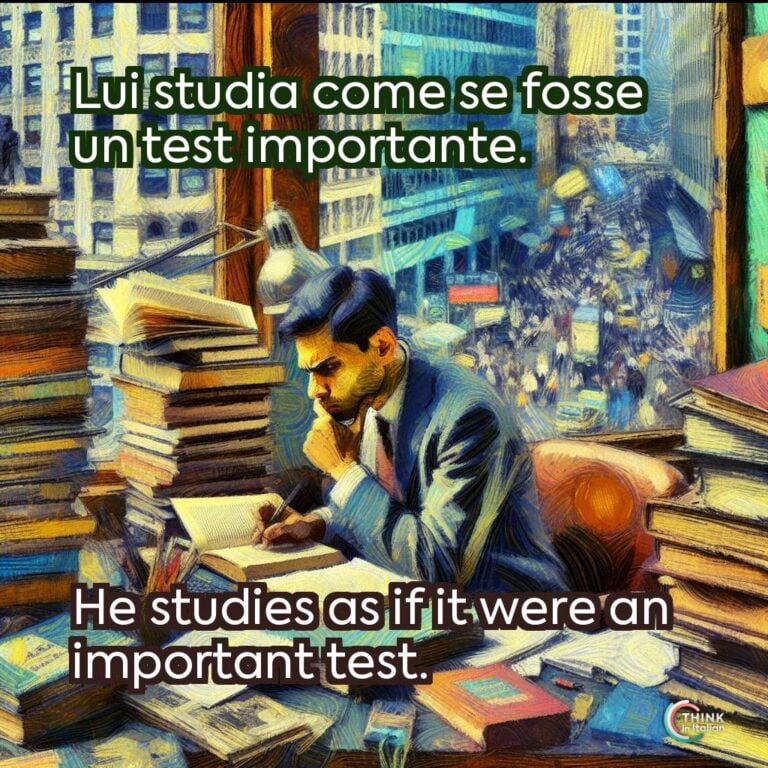“Come se” Mean in Italian
What Does “Come se” Mean in Italian?
As simple as it is, the Italian expression come se can be translated with “as if” in English. In both languages, we use this expression to talk about an imaginary situation or a situation that may not be true but that is likely or possible.
Mia nonna mi parla come se non mi conoscesse.
My grandmother talks to me as if she didn’t know me.
How to use “come se” in Italian?
The Italian come se is one of those expressions that trigger the Italian subjunctive because it expresses a hypothetical possibility.
Specifically, we can use either congiuntivo imperfetto (imperfect subjunctive) or congiuntivo trapassato(past perfect subjunctive). However, notice that the English counterpart is always the same.
Let me guide you through the use of this expression with these two verb tenses.
“Come se” With Subjunctive
“Come se” + Imperfect Subjunctive
We use the congiuntivo imperfetto to express a hypothetical situation in the present, to talk about an ongoing situation or a general state of being. It describes something that is not true but is imagined as if it were true.
Mi guarda come se sapesse cosa sto pensando.
He looks at me as if he knew what I am thinking.
Me l’ha ridato come se fosse mio.
He gave it back to me as if it were mine.
Mi parlava come se io non capissi.
She spoke to me as if I didn’t understand.
As you can see, the event in the main clause and the hypothetical event in the dependent clause happen simultaneously.
Have a look at the second sentence: the simultaneity refers to the fact that both the action of giving something back and the hypothetical condition of it being mine are occurring at the same time.
“Come se” + Past Perfect Subjunctive
We use the congiuntivo trapassato to express a hypothetical, unreal, or imagined situation in the past that did not happen.
Si comportava come se non ci fossimo mai visti.
He behaved as if we had never seen each other.
È felice come se niente fosse successo.
She’s happy as if nothing had happened.
Ci tratta come se noi avessimo rubato le sue cose.
He treats us as if we had stolen his things.
Here, the event of the dependent clause was supposed to be happening (or not happening, in this case) before the event in the main clause. Therefore, the events are ordered chronologically.
Have a look at the first sentence: the dependent clause non ci fossimo mai visti suggests a hypothetical scenario where you had never met the person. This event is imagined to have taken place before the behavior described in the main clause.




